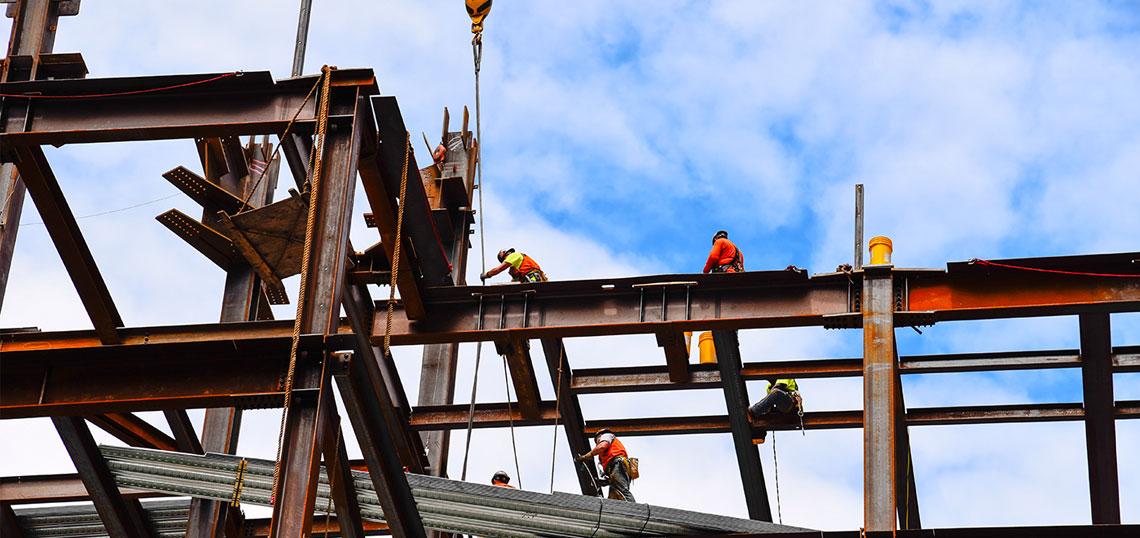Immigrant workers represent a disproportionate number of deaths on construction sites: "This is one of the most dangerous times in generations to be an immigrant construction worker in New York City. Last March, when much of the city closed for business because of the coronavirus pandemic, many construction sites remained open for weeks, the work deemed essential and the laborers forced to choose between working in close, unsanitary quarters and losing a paycheck. [...] Even setting aside the pandemic, construction workers are dying on the job at alarmingly high rates. According to the U.S. Bureau of Labor Statistics, nationwide, 20 percent of all worker fatalities in 2019 occurred on private construction sites. [...] Latino workers in New York suffer disproportionately high rates of worker fatalities. In 2018, Latinos represented 10 percent of all workers in New York State but 19 percent of those who had died on the job." (The Atlantic)
NYC retail sees hints of a rebound with activity from deal-seekers: "'No one is asking for the kind of rents they did in 2019,” he [Spencer Rubin of Melt Shop] said. “That reduction in operating costs and reduced capital costs of opening in second-generation restaurant spaces means that New York is preparing for one of the best opportunities for restaurant openings in a long time.'" (The City)
Less than half of Manhattan office workers are expected to return to the office this fall: "The Partnership for New York City surveyed major employers between February 24 and March 8 to project how long Manhattan’s one million office workers will continue to work remotely. Key findings are that almost half of office workers are expected to return by September 2021; most will continue to work remotely at least part-time; returning workers will rely on public transit; and business travel will permanently decline." (Partnership for NYC)
NYC needs a deputy mayor of public spaces: "As we continue to recover, get vaccinated and create our new normal, it is critical we view our public spaces as positive assets for the city. We need to plan and regulate them to reflect the critical role they play now and will continue to play. That is why we at the Times Square Alliance recommend a new city position: deputy mayor for public spaces." (Crain's)
Where mayoral candidates are getting most their money: "For McGuire, the bulk of his contributors are investors, CEOs, and the unemployed. A deeper look into McGuire's campaign finances shows these unemployed donors are wealthy, with at least 20 donors contributing $5,100 each. Among McGuire's well-heeled donors are Coca-Cola executive Shahara Ahmad-Llewellyn; Peloton executive Carolyn Tisch Blodgett (and a member of the Tisch family); and millionaire Malaak Compton-Rock, the ex-wife of comedian Chris Rock. The real estate sector is making a dent with its spending on this race, with McGuire benefitting the most. Under the filings, McGuire has collected $115,732 from realtors, followed by Adams with $89,610, and Stringer—who has been critical of the real estate sector—with $73,815." (Gothamist)
State budget proposal makes room for three NYC casinos: "Amid a pandemic, an impeachment investigation and with the April 1 deadline fast approaching, New York’s state budget could put New York City on a very fast track to get three full-scale casinos—even as it carves out tax breaks for existing casinos that are foundering. When voters approved casino gambling by referendum in 2013, they okayed four upstate casinos. Under that law, a decision on casinos in New York City was put off until 2023, but it’s been expected for months that the legislature would rewrite the rules to begin a process for siting New York City casinos this year." (City Limits)
300 candidates vie for 32 City Council seats: "While the fight to succeed the term-limited de Blasio for mayor is attracting more notice — 22 candidates, including former presidential aspirant Andrew Yang, are jockeying for the post — the city council races could be a better barometer of the direction of municipal politics. At least 32 of 51 seats will be open due to term limits or retirements, compared to 9 in 2017, and roughly 300 candidates have announced city council candidacies. For the first time, the city will use ranked choice voting, which might help elect a more diverse group to the city’s one-party-dominated council. There’s a strong potential that the council could move further left, highlighting the battle between mainstream Democratic politicians and its more activist wing around the direction of policy in U.S. cities." (Bloomberg City Lab)
City Planning Commission approves Zoning for Coastal Flood Resiliency: The proposal, which now moves to the City Council for review and approval, updates and improves on emergency rules established in the wake of Sandy, and makes them permanent. These changes will help to better protect the 800,000 New Yorkers, and tens of thousands of affordable homes, businesses and jobs, located in the current and future floodplain." (Real Estate Weekly)
Writer and Queens resident Steven Bodzin wants 34th Avenue designated a "living memorial": "Mayor de Blasio already said he wants open streets made permanent. The city Department of Transportation is holding meetings about how 34th Avenue should be transformed. Most of the ideas relate to specific treatments, such as how to restrict vehicle passage or where to put benches. But we need to think bigger: 34th Avenue should become a memorial to the COVID pandemic. A living memorial." (Streetsblog)






